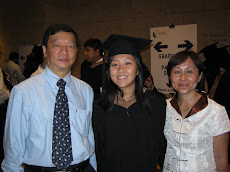
1. Be a super saver, not a super spender. Savings should come first before spending, and it should take first claim on your income. Saving what is left after spending does not work. Saving should rank as high as staple needs like rental, food, and other commitments and certainly above luxuries such as holidays, and entertainment. If you are unable to do this, you have to adjust your lifestyle. Acquire assets and not liabilities. Credit cards, cars, and club memberships are all liabilities.
2. Start early. Start saving early, but it is never too late to start. My grand dad used to tell me that it is what you save and not what you earn that will make you financially secure. Everyone must save at least 10% of their income, preferably 20% to 30% of your income.
3. Basics first. First plan for emergencies, illness, disablement and death. It is important to
 have term and health insurance. Purchase your insurance when you are young because it is much cheaper. NTUC members should get NTUC Income’s LUV plan – which is a low cost insurance coverage for the entire family. Our Incomeshield is an excellent health insurance plan that covers hospital bills. i-Term is the best and lowest cost term insurance plan in the market today. Do not hesitate nor delay in getting these basics. If you do, it is like going on a long car journey to a remote area without sufficient gasoline or spare tires. It is simply asking for trouble.
have term and health insurance. Purchase your insurance when you are young because it is much cheaper. NTUC members should get NTUC Income’s LUV plan – which is a low cost insurance coverage for the entire family. Our Incomeshield is an excellent health insurance plan that covers hospital bills. i-Term is the best and lowest cost term insurance plan in the market today. Do not hesitate nor delay in getting these basics. If you do, it is like going on a long car journey to a remote area without sufficient gasoline or spare tires. It is simply asking for trouble.4. Education and retirement are important building blocks. Always plan for your children’s education and your own retirement. This is best done by saving regularly (monthly) for long periods. The best plans for these are life insurance, investment linked plans and unit trusts. Consult a financial advisor or someone you trust for advice on this. Be committed to finish a plan once you have started on it.
5. Do not be
 greedy or let your emotions rule. Do not be tempted by high returns as high returns always mean more variability in returns (risks), and sometimes no return. You must also understand your own tolerance of risk. Do not be swayed by emotions when making financial decisions as they cause you to make the wrong turns. Remember, there is no such thing as a free lunch. In any event, a good rule is never test the depth of water with both feet, i.e. do not risk everything you have in one go – risk only money you can afford to lose. And certainly, do not borrow to invest – they call it leverage.
greedy or let your emotions rule. Do not be tempted by high returns as high returns always mean more variability in returns (risks), and sometimes no return. You must also understand your own tolerance of risk. Do not be swayed by emotions when making financial decisions as they cause you to make the wrong turns. Remember, there is no such thing as a free lunch. In any event, a good rule is never test the depth of water with both feet, i.e. do not risk everything you have in one go – risk only money you can afford to lose. And certainly, do not borrow to invest – they call it leverage.
6. Have no fear; Long term means you can take a bit more risk. Equities carry higher risk than bonds. But if your saving horizon is longer term, say 20-30 years, then you can have more investments in equities. Typically if your age is x, you can take say 100 –x in equities. So if age 45, you can take 55% (100-45) in equity. The rest should be cash or bonds or with profits insurance products. However, if you have a lower risk appetite or you are nearer retirement, use 85-x. In any event, a good rule is never put all eggs in one basket, i.e. diversify!
7.You
 are no expert. Do not buy stocks directly, unless you are a financial expert or are prepared to spend a lot of time managing your stock portfolio. If I were to invest or realise a lump sum, I believe in averaging in and averaging out. For example, if I have $100,000 to invest, I will break them into ten installments and spread them over ten months. Similarly, if I want to sell something, I will tend to average out, for example, selling 20% of the investment at a time. In doing so, I minimise my risk. The truth of the matter is that no one knows the market top or market bottom. Neither do I. Remember, it is not timing the market. It is time in the market that matters.
are no expert. Do not buy stocks directly, unless you are a financial expert or are prepared to spend a lot of time managing your stock portfolio. If I were to invest or realise a lump sum, I believe in averaging in and averaging out. For example, if I have $100,000 to invest, I will break them into ten installments and spread them over ten months. Similarly, if I want to sell something, I will tend to average out, for example, selling 20% of the investment at a time. In doing so, I minimise my risk. The truth of the matter is that no one knows the market top or market bottom. Neither do I. Remember, it is not timing the market. It is time in the market that matters.8.Simplify your life and own only what you need. Have interests, not possessions, which enri
 ch your life, and go for meaningful value rather than quantity. Buy things which last and which really give you pleasure. Do not buy things just because they are cheap. Never buy something just because somebody else has got it. It is silly and will not give you happiness. If you buy things you don’t need, you’ll soon sell things you need. And, never buy or spend on credit unless it is for your own property. It is possible for most of us to have a good life in Singapore without being super rich.
ch your life, and go for meaningful value rather than quantity. Buy things which last and which really give you pleasure. Do not buy things just because they are cheap. Never buy something just because somebody else has got it. It is silly and will not give you happiness. If you buy things you don’t need, you’ll soon sell things you need. And, never buy or spend on credit unless it is for your own property. It is possible for most of us to have a good life in Singapore without being super rich.9. Your gre
 atest asset. Your greatest asset is not money. It is you. Take care of your physical, mental and spiritual health and the well being of all your relationships. That also means buy all the term, disability and health insurance you need. And remember to help others less fortunate than you.
atest asset. Your greatest asset is not money. It is you. Take care of your physical, mental and spiritual health and the well being of all your relationships. That also means buy all the term, disability and health insurance you need. And remember to help others less fortunate than you.10. Be inspired. Read good books and guides. , Some of best books I have come across on the subject of personal financial planning are The Millionaire in You by Michael LeBouef, Rich Dad, Poor Dad by Robert Kiyosaki and How Much is Enough? by Arun Abey. Besides reading, talk to the right people for knowledge and inspiration.



















No comments:
Post a Comment